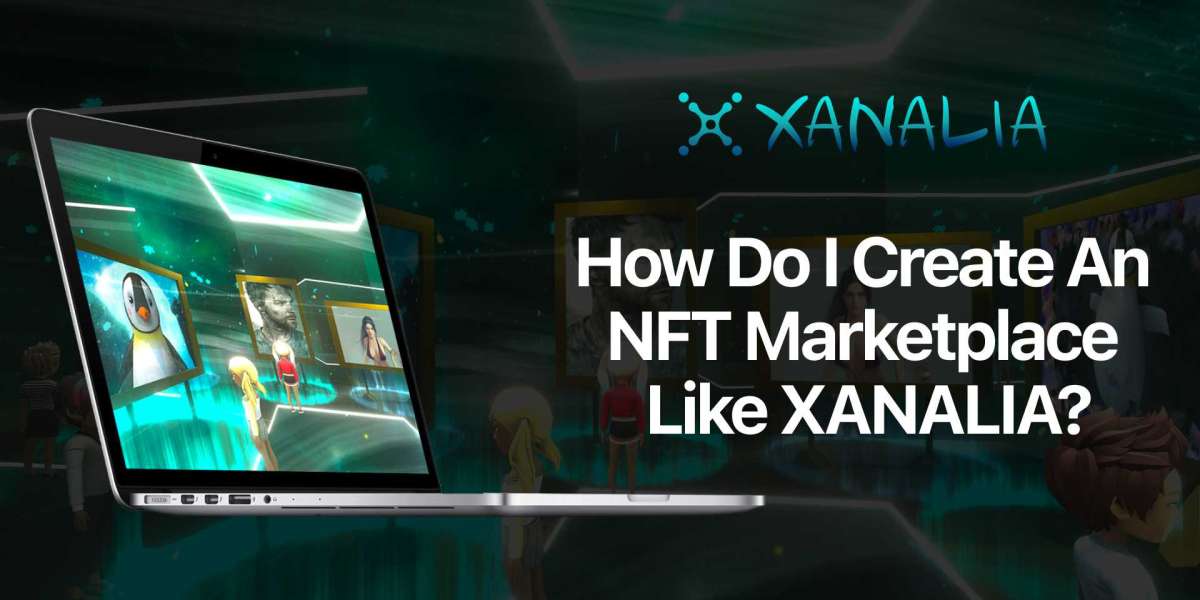How Do I Create An NFT Marketplace Like XANALIA?
The hype about non-fungible tokens has started to increase over the past few years when the world is in the beginning stages of the digital revolution. Currently, the demand for NFT marketplaces has begun to grow significantly. There are several NFT markets currently dominating. However, the NFT space offers newcomers a more incredible opportunity to deploy their NFT marketplaces.
Here I’m sharing the insight on creating an NFT marketplace. Non-fungible tokens or NFTs are digital assets that represent real-world objects such as art, music, sports moments, in-game items, and videos. However, the NFT Marketplace is a medium that makes digital trading assets easy and hassle-free. The most prominent and secure of these is XANALIA, which is widely used for trading by NFT enthusiasts. Popular NFT marketplaces include XANALIA, SuperRare, Rarible, and OpenSea.
How Does An NFT Marketplace Like XANALIA Work?
XANALIA is an NFT marketplace for digital trading items and crypto collectibles. Here is an overview of the workflow for NFT marketplaces like XANALIA.
Step 1
Whether you are a seller or a buyer, you must provide the required information and register with the NFT Marketplace. You must complete the KYC verification process to verify your identity.
Step 2
The second step is to set up your wallet so that users can choose the wallet they have chosen to store their digital assets more securely.
Step 3
Now the seller needs to emboss his work as an NFT. This is very similar to uploading an image to a social networking site. Now it can be purchased by other users who have registered with the platform.
Step 4
After listing the NFT, you must choose a fixed price option or auction. When choosing a fixed price, you must set the purchase price for the listed NFTs. If you choose the auction option, you will need to set a bid price.
Step 5
On the other hand, buyers can search the list for the NFT they want to buy. Digital assets are categorized on the platform, so you can use filters to search for NFTs instantly.
Key Features To Consider When Developing NFT Marketplace Clone
Here are some essential features to consider when developing XANALIA Clone:
Showcase
Attractive stores are a must-have feature in NFT marketplaces like XANALIA. Here, users can view basic information about the ad, including price, creator and more.
Smart Search Options
NFT is listed on the market as platform users can search to find what they want to buy. The smart search option simplifies the search process by allowing users to search by price, listing status, collection, and more.
Creating Lists
Users can create NFTs and upload these digital collectibles with essential information such as plugin names, tags, descriptions, etc. Uploading non-fungible tokens are equivalent to loading posts from social networks.
Wallet Option
The XANALIA Clone white-label integrated with the e-wallet allows users to store securely, send, and receive non-fungible tokens.
Bid and Buy
As sellers on the platform can trade NFTs using one of these options, it is essential to consider both the purchase and offer options. When selecting a staking option, the seller must provide details such as staking expiry date, staking value, etc.
Transaction History
Transaction history makes it easier for platform users to check NFT transaction history. Additionally, you can effectively track payment transactions.
Make Your Way To The Development Of XANALIA Like Marketplaces
Move forward with the evolution of XANALIA like NFT trading platforms. To do this, you need to choose a reliable company that specializes in providing XANALIA Clone solutions with the following benefits:
- Instantly deploy the platform with end-to-end customization and extensibility.
- Multi-signature crypto wallet, supporting secure and secure storage of digital assets.
- Ability to integrate APIs and third-party plugins with cross-platform compatibility.








